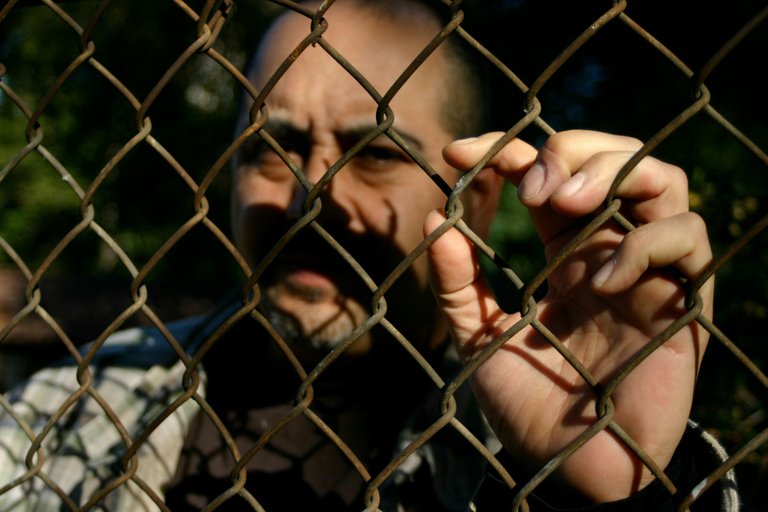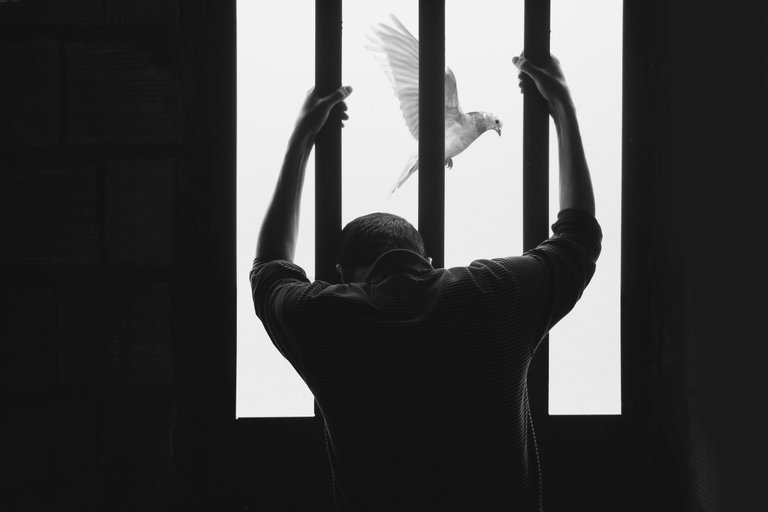Segundas oportunidades/ Second chances.(Esp/Eng).
 -Imagen de Mohammad Beykzadeh, Unsplash-
-Imagen de Mohammad Beykzadeh, Unsplash-
Las grandes creaciones, los grandes logros, las hazañas o grandes acciones suelen trascender y tener un gran reconocimiento social, que es, por lo general, proporcional a la magnitud del hecho en si.
El o los protagonistas son reconocidos, admirados y recordados por su creación durante y mucho después del hecho en si.
Pero, a la larga, y con independencia de la magnitud, importancia o aporte del mismo, la latencia de ese recuerdo disminuye, con el paso del tiempo, su frecuencia y permanece asentada donde se documentó, en el valor que tuvo en su época y pasa a formar parte de referencias sobre la historia y evolución del tema con que se relacione. La alta pooularidad febril que haya tenido en el momento de su nacimiento entra en un estado de reposo y luego pasa a tener cortos momentos de despertar en comentarios o referencias más aisladas, aunque puedan ser enfáticas y realzativas de su valor. Incluso en aquellos que impactó fuertemente y que son fervientes seguidores, el recuerdo se adormece un poco.
Los errores duran más.

-Imagen de CHUTTERSNAP, Unsplash-
Aunque podamos aprender de los errores, siempre habrá nuevos errores que vendrán, somos humanos después de todo, no?
Cometemos errores más o menos costosos, con mayor o menor trascendencia y es la manera de lidiar con ellos y de aprender de ellos la que nos permite sobreponernos y seguir adelante o no, porque a veces hay errores en los que nos encasillamos y no logramos dejar atrás.
En otras ocasiones es el entorno el que insiste en recordarlos y hacerte pagar precios innecesarios por ello.
En más de una ocasión he presenciado, y también vivido, situaciones como esta en las que, sin importar la trayectoria de un sujeto, los logros que haya alcanzado, sus buenas acciones o cualquier otro rasgo positivo, es fuertemente juzgado por el entorno a partir de un error cometido que, por alguna razón que no entiendo, hace desaparecer (o al menos eso parece) todo lo bueno que hizo antes y desde ese momento es visto y tratado de la peor manera.
En esos casos la persona es aislada, rechazada y desprovista de oportunidades de demostrar que verdaderamente es la persona de logros que siempre fue y que solo cometió un error, como cualquiera lo hace, nadie está excento del hecho.
Las personas en el entorno, sea por prejucios, por superficialidad o por miedo a que diferir explícitamente del criterio y actuar general sobre la base de una opinión propia objetiva diferente, los lleve al mismo hoyo de rechazo en el que cayó la persona en cuestión, dan la espalda, se alejan y rechazan a esa persona rotundamente.
Estas situaciones suelen durar muchísimo tiempo. Al cometer un error dejas de ser valorado como el tipo de persona que eras antes de cometerlo, aunque lo hayas sido por largo tiempo, y comienzas a ser visto como todo lo contrario, como si tu error no lo fuera y realmente fuera un comportamiento común en tu trayectoria.
Lograr salir de ese hoyo en el que se empeñan en hundirte toma mucho tiempo, para algunos, hay otras personas que por cuestiones de influencias y poder, hacen desaparecer el error extendiendo un cheque o haciendo uso de su poder en otros sentidos, personas que por lo general también son las que de alguna manera ejercen sus influencias y poder para mantener en hoyos a otras que cometieron, quizás, errores de menor magnitud o trascendencia y que son magníficados a propósito para sencillamente hacer daño.

-Imagen de Kirk Cameron, Unsplash-
Eventualmente estas prolongadas e incómodas situaciones, por lo general vinculadas a situaciones sociales o laborales, generan un estado frustración y tristeza en el individuo, ya que los constantes bloqueos y rechazos que recibe van cerrando puertas y dejándolo sin opciones, además de crear una sensación de inseguridad y desesperación como resultado de sus intentos fallidos de superar el tropiezo y salir adelante.
Correcto o incorrecto?
Nunca me gusta ser absoluto, está vez no es una excepción.
Entiendo que hay errores muy graves y costos, pero sé también que por lo general errores así conllevan a sanciones o penalidades cuya función es resarcir el daño causado -aunque algunos daños no son resarcibles-.

-Imagen de Hasan Almas, Unsplash-
Como dije al inicio, cualquiera puede cometer un error, incluso voluntarianente, pero no considero que eso deba implicar un aislamiento, rechazo definitivo o despojo de oportunidades de resarcir el daño de la persona, de limpiar su nombre, de demostrar que es esa persona que por mucho tiempo hizo cosas valiosas y que es ese el tipo de persona que prevalece aunque a partir un error se intente hacer creer lo contrario.
Por lo tanto, no, no creo que este tipo de comportamientos sea correcto. Creo en las segundas oportunidades y en que son las capacidades reales de las personas y el comportamiento sostenido de éstas los que tienen la última palabra después de todo. No creen?
HASTA LA PRÓXIMA


ENGLISH VERSION (click here!)
 -Image by Mohammad Beykzadeh, Unsplash-
-Image by Mohammad Beykzadeh, Unsplash-
Great creations, great achievements, feats, or great actions often transcend and receive great social recognition, which is generally proportional to their impact. to the magnitude of the event itself.
The protagonist(s) are recognized, admired, and remembered for their creation during and long after the event itself.
But, in the long run, and regardless of the magnitude, importance, or contribution of the event, the latency of that memory diminishes with the passage of time, its frequency remaining settled where it was documented, in the value it had at the time, and it becomes part of references on the history and evolution of the subject to which it relates. The high popularity it may have had at the time of its inception enters a state of rest and then has brief moments of awakening in more isolated comments or references, although they may be emphatic and extolling its value. Even in those who had a strong impact and who are fervent followers, the memory lulls a little.
Mistakes last longer.

-Image by CHUTTERSNAP, Unsplash-
Even though we can learn from mistakes, there will always be new ones to come. We are human after all, aren't we?
We make mistakes, of varying degrees of cost, of varying degrees of significance, and it's how we deal with them and learn from them that allows us to overcome them and move forward, or not. Sometimes there are mistakes we pigeonhole and can't move on from.
Other times, it's our environment that insists on reminding us of them and making us pay unnecessary prices for them.
On more than one occasion, I've witnessed, and even experienced, situations like this in which, regardless of a person's career, achievements, good deeds, or any other positive trait, they are harshly judged by their surroundings based on a mistake they made that, for some reason I don't understand, wipes out (or at least seems to) all the good they did before, and from that moment on, they are viewed and treated in the worst possible light.
In these cases, the person is isolated, rejected, and deprived of opportunities to demonstrate that they are truly the accomplished person they always were and that they just made a mistake, as everyone does; no one is exempt from this fact.
Whether due to prejudice, superficiality, or fear that explicitly differing from the judgment and generally acting on the basis of a different, objective opinion will lead them to the same pit of rejection the person in question fell into, people in the environment turn their backs, distance themselves, and reject that person outright.
These situations often last a very long time. When you make a mistake, you stop being valued as the kind of person you were before making it, even if you've been that way for a long time, and you begin to be seen as the complete opposite, as if your mistake wasn't a mistake and was actually a common behavior in your career.
Getting out of the hole they're trying to sink you into takes a long time. For some, there are other people who, for reasons of influence and power, make the mistake disappear by writing a check or using their power in other ways. These people are generally also the ones who somehow wield their influence and power to keep others in the hole who have perhaps made mistakes of lesser magnitude or significance, and who are purposefully magnified simply to cause harm.

-Image by Kirk Cameron, Unsplash-
Eventually, these prolonged and uncomfortable situations, usually linked to social or work situations, generate a state of frustration and sadness in the individual, since the constant blockages and rejections they receive They close doors and leave him without options, in addition to creating a feeling of insecurity and desperation as a result of his failed attempts to overcome the setback and move forward.
Right or wrong?
I never like to be absolute, and this time is no exception.
I understand that there are very serious and costly mistakes, but I also know that such errors generally lead to sanctions or penalties whose purpose is to compensate for the damage caused -although some damages are not compensable-.

-Image by Hasan Almas, Unsplash-
As I said at the beginning, anyone can make a mistake, even voluntarily, but I don't think that should imply isolation, definitive rejection, or deprivation of opportunities to repair the damage to the person. to clear his name, to show that he's the person who did valuable things for a long time and that he's the kind of person who prevails, even if, based on a mistake, people try to make us believe otherwise.
Therefore, no, I don't think this type of behavior is right. I believe in second chances and that it's people's true abilities and their sustained behavior that have the final say, after all. Don't you think so?
UNTIL NEXT TIME


¡Felicidades! Esta publicación obtuvo upvote y fue compartido por @la-colmena, un proyecto de Curación Manual para la comunidad hispana de Hive que cuenta con el respaldo de @curie.
Si te gusta el trabajo que hacemos, te invitamos a darle tu voto a este comentario y a votar como testigo por La Colmena.
Si quieres saber más sobre nuestro proyecto, te invitamos a acompañarnos en nuestro servidor de Discord.
Muchas gracias por su apoyo.